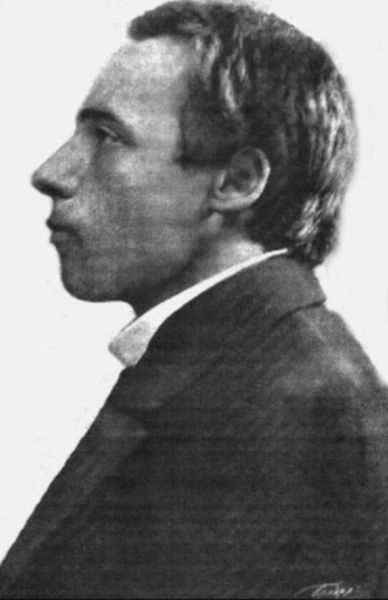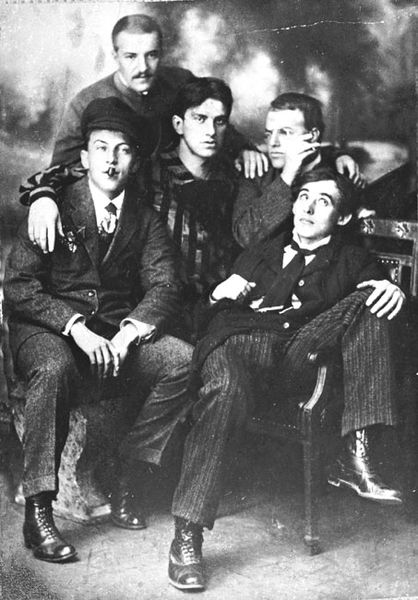Viktor Vladimirovich Khlebnikov, better known by the pen name Velimir Khlebnikov, was a Russian poet and playwright, a central part of the Russian Futurist movement, but his work and influence stretch far beyond it. Influential linguist Roman Jakobson hailed Khlebnikov as "the greatest world poet of our century".
Velimir Khlebnikov
Velimir Khlebnikov, painted in 1910 by Mikhail Larionov
Khlebnikov in 1913
Russian Futurism is the broad term for a movement of Russian poets and artists who adopted the principles of Filippo Marinetti's "Manifesto of Futurism", which espoused the rejection of the past, and a celebration of speed, machinery, violence, youth, industry, destruction of academies, museums, and urbanism; it also advocated for modernization and cultural rejuvenation.
Group photograph of some Russian Futurists, published in their manifesto A Slap in the Face of Public Taste. Left to right: Aleksei Kruchyonykh, Vladimir Burliuk, Vladimir Mayakovsky, David Burliuk, and Benedikt Livshits.
The Knifegrinder (1912-13), by Kazimir Malevich, is an example how Cubism and Futurism crossed over to create Cubo-Futurism, a combined art form.
Igra v Adu (A Game in Hell; Moscow 1914 edition) is an example of the collaborations of Futurist writers and visual artists. It fused Khlebnikov and Kruchenykh's poems with Goncharova's bold imagery.
Cyclist (1913) by Natalia Goncharova. This painting is an example of how Russian Futurism affected her later works.







